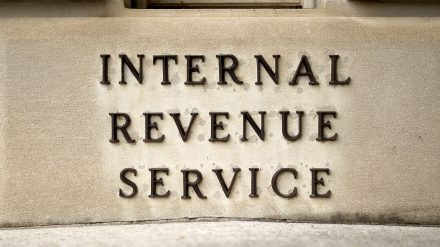An IRS audit of your church can be a stressful experience:
Does the IRS not trust us?
Will we have to pay more out of our already slim budget?
A lot of this worry is unwarranted—the IRS accepts most church tax returns as filed.
The IRS usually audits returns based on a high probability for error or discrepancies among forms, not dishonesty.
Are you using tax preparation software to file your tax returns? Or even your church’s returns? Noted non-profit CPA Michele Wales offers these helpful tips for finding the right software for your needs.
That’s why an IRS audit often ends without any change in reported tax. Some even result in refunds.
Therefore, knowing what to expect of an audit can remove a lot of anxiety.
An audit is just a mutual examination
The IRS—not a third party—will notify your church if they’ve decided to examine a return(s). They’ll ask you to gather the documentation in support of your return(s). And they will decide, in consultation with you, when, where, and how, the examination will take place.
Information exchange happens through correspondence or in-person. It might happen in your home, your place of business, an IRS office, or the office of your attorney or accountant.
You may act on your own behalf during the audit. Or, you can have an attorney, CPA, enrolled agent (someone enrolled to practice before the IRS), or the person who prepared and signed your return represent or accompany you.
If you choose this option, you must give your representative with power of attorney (Form 2848).
When the IRS finishes the examination, they’ll advise you of any proposed change in your taxes, and the reasons for them.
They’ll ask you to sign off on the changes, and pay any additional taxes.
You can appeal the IRS’ findings
If you do not agree with IRS’ proposed changes, you still have options.
If you decide not to sign the agreement form, the examiner will explain your appeal rights. You may request an immediate meeting with a supervisor to explain your position if your examination takes place in an IRS office.
The case is closed when an agreement is reached.
If an agreement is not reached at this meeting or if your examination occurs outside of an IRS office, you will be sent (1) a letter notifying you of your right to appeal within 30 days; (2) a copy of the examination report explaining the proposed adjustments; (3) an agreement or waiver form; and (4) a copy of IRS Publication 5 (which explains your appeal rights in detail).
If, after receiving the examiner’s report, you decide to agree with it, simply sign the agreement or waiver form and return it to the examiner.
If you still do not agree with the examination report, you may appeal your case within the IRS or take it immediately to the federal courts.
For a complete explanation, download IRS Publication 556.
We adapted his article from Richard Hammar’s Church & Clergy Tax Guide.




